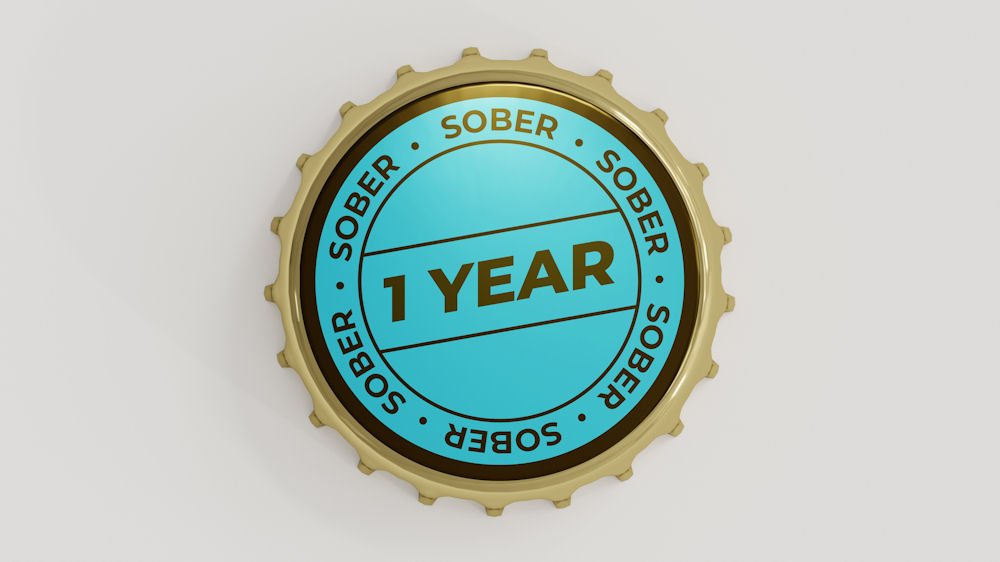
Traveling in recovery can be enjoyable and fulfilling with the right planning. There are benefits to a sober vacation. Substance-free travel experiences can encourage healing, fun, and connection.
Golden Gate Recovery in Marin County, California, is here to support your recovery. We highlight the benefits of sober vacations and cruises and offer tips for staying grounded while exploring new places. Discover how you can maintain your sobriety and still enjoy meaningful, alcohol-free travel experiences across the globe.
A sober vacation is a travel experience designed for individuals who want to enjoy their time away without alcohol or drugs. These vacations offer safe, supportive environments where people in recovery can relax and explore without the pressure to drink or use. Instead of focusing on nightlife or parties, sober vacations highlight wellness, connection, and personal growth.
Many of these trips are organized by sober travel companies or recovery-focused groups, making it easier to meet others who share your lifestyle. Activities may include yoga, hiking, meditation, or cultural tours, all in alcohol-free settings. Some sober vacations also offer optional group meetings or workshops that provide additional emotional support.
Traveling while sober doesn’t mean sacrificing fun or adventure; it just means enjoying those things more healthily. Whether it’s a beach retreat, a mountain getaway, or a cultural cruise, sober vacations create space for meaningful experiences without compromising your recovery.
Traveling while sober allows you to experience the world more clearly and meaningfully. Without the haze of substances, you can be fully present during your trip. You remember the moments, enjoy deeper connections, and avoid the regrets that can come with drinking or using.
Sobriety also brings physical benefits during travel. Many people report better sleep, increased energy, and reduced anxiety when they travel sober. These changes can make your trip more enjoyable and less stressful. Without hangovers or emotional ups and downs, you’re free to explore and relax in a more stable mindset.
Sober vacations can also strengthen your recovery. They give you a chance to practice coping skills in new environments and boost your confidence in staying sober outside your routine. You meet others who understand your journey, and that sense of community is uplifting.

Sober cruises offer a unique and supportive way to travel the world without compromising your sobriety. Unlike traditional cruises, which often revolve around alcohol and nightlife, sober cruises offer a completely substance-free environment. Everyone on board shares a commitment to recovery, creating a space where you can unwind without pressure or temptation.
These cruises often include daily recovery meetings, group activities, and optional workshops. The schedule provides structure, while also leaving room for rest and fun. With access to supportive peers and planned sober-friendly excursions, it’s easier to stay focused on your well-being.
The calming nature of the ocean can be especially healing. Being surrounded by water, away from daily stress, offers a peaceful backdrop for reflection and growth. Activities like yoga, art, and guided meditation may also be part of the experience.
Sober cruises aren’t just vacations, they’re opportunities to deepen your recovery while still enjoying travel. You leave not only with memories but also with renewed strength and community.
Here are common reasons people may fall off the wagon while traveling:
Travel often disrupts daily habits that help maintain sobriety.
It may be harder to find meetings or contact a sponsor.
Vacation settings often include bars, drinking, or party environments.
Friends or family may unintentionally encourage drinking or using.
Old habits can resurface when visiting familiar places tied to past substance use.
Feeling alone or disconnected on a trip can trigger cravings.
Delays, unfamiliar settings, or tight schedules may increase anxiety or frustration.
Some convince themselves that a small slip is no big deal.
Feeling completely “recovered” can lead to risky decisions.
Without a strategy for handling triggers, it’s easier to fall back into old patterns.

Traveling in early sobriety can feel uncertain, but it also offers a chance to build confidence and enjoy new experiences. By preparing ahead, you give yourself the tools to stay steady while still having fun.
A sober vacation or cruise can create a supportive, substance-free setting that makes travel less stressful and more fulfilling. Here are some tips to help you stay grounded while exploring new places:
Your recovery comes first, and you can protect it while still enjoying the journey.
Yes, taking vacations while sober can support long-term recovery. Sober travel allows you to enjoy new experiences without falling into old habits. It proves that you can have fun, explore, and relax—all while staying committed to your sobriety.
Time away from your usual routine can help you reset mentally and emotionally. Vacations reduce stress, which is a common trigger for relapse. They also allow you to apply the coping strategies you’ve learned in treatment, a sober living program in Marin County, or other recovery programs.
Many sober vacations and cruises include mindfulness activities, group check-ins, or therapeutic workshops. These moments of reflection can reinforce your growth and give you renewed motivation.
Recovery isn’t just about staying sober; it’s also about feeling connected, accepted, and understood. A strong recovery community can make a major difference in how supported you feel each day. Being around others who understand your struggles and growth can help you stay motivated and grounded.
Golden Gate Recovery builds connections through peer support, group therapy, and ongoing relationships with alumni. This environment allows people to open up, build trust, and learn from one another. Whether you’re attending addiction counseling or participating in sober outings, shared experiences create lasting bonds.
Many people in recovery feel isolated at first. Community helps ease that feeling. It reminds you that you’re not alone, and that others are walking a similar path. Whether you’re newly sober or rebuilding after relapse, connection with others can help you stay steady.

Sober travel can be a powerful way to grow emotionally, mentally, and even spiritually. Without substances clouding your experience, you’re free to reflect, connect, and discover what truly brings you joy. Travel challenges your comfort zone, and facing those moments sober builds resilience.
When you visit new places, you learn how to adapt without relying on old habits. You gain confidence in your ability to navigate change. That confidence often carries into everyday life.
Travel can also shift your perspective. Seeing different cultures, environments, or ways of living may help you reevaluate what matters most. It gives you space to think, slow down, and set intentions for the future.
Many people return from sober vacations with a deeper sense of purpose and gratitude. They’ve proven to themselves that life can be fulfilling without substances. These positive experiences help anchor long-term recovery.
Beginning treatment at Golden Gate Recovery means stepping into a space focused on practical support and long-term stability. We offer structured programs for men looking to address substance use and start building new habits that last.
Clients participate in individual therapy, group therapy, and day-to-day routines that encourage consistency. Our focus is on what works: developing real-world coping skills and a clearer understanding of what drives addiction.
We also integrate physical activity, mindfulness, and life planning into each client’s recovery process. These tools help you prepare not only for daily challenges but also for things like sober travel and maintaining balance away from home.
There’s no perfect moment to start. If you’re ready to take steps toward change, our team is here to help you get organized and move forward. Treatment doesn’t have to be overwhelming.

You don’t have to give up traveling to stay sober. Sober vacations and sober cruises offer a way to enjoy the world while protecting your recovery. These options make it easier to explore new places without the pressure to drink or use substances.
Whether you’re in early sobriety or well into your journey, sober travel can be healing and empowering. It allows you to create memories that matter, deepen your self-awareness, and experience life with clear eyes and a full heart.
At Golden Gate Recovery, we understand how important these opportunities are. Our programs are designed to prepare you for real-life situations, including travel. We help you build resilience, set boundaries, and develop the confidence to live life fully and freely.
If you’re ready to explore the world while protecting your sobriety, we’re here to help you prepare. Contact us today to learn how our treatment programs and recovery tools can support your journey, both at home and on the road.
Get confidential help! Call Us Now for:
Motivation is hard; it takes a lot of effort to find it. Even when a person does find it, it can be difficult to clearly define one’s goals without getting overwhelmed. This is why it’s imperative to monitor progress in recovery. Marking sobriety milestones is a great way to stay motivated during early recovery. These milestones serve as powerful reminders of personal perseverance; it could be as small as the first week without alcohol, or as big as three months without illicit drugs.
Either way, recognizing milestones, no matter how big or small, is imperative to the process of treatment. These moments provide opportunities for reflection, growth, and establishing a stronger foundation for a healthier life.

Embarking on the first year of sobriety is a profound journey filled with numerous milestones and self-reflection. During this period, each sober day feels like a small victory and can lead to rather large achievements. The initial challenge typically involves navigating social situations without the crutch of alcohol. However, in time, these hurdles will become opportunities to forge deeper, more authentic connections.
When a person is sober for a year, their physical health will see significant improvements. This could be as simple as clearer skin to increased energy levels. Ultimately, this reaffirms the benefits of a sober lifestyle. Emotionally, those in their first year of recovery rediscover their sense of self. The culmination of these milestones, both big and small, stands as a testament to an individual’s perseverance.
The first year of sobriety is significant for several reasons. It marks a crucial period of adjustment where people move from dependence to independence; they begin learning to navigate life without the crutch of substances. During the transformative process that is recovery, many experience substantial personal growth in the first year; they learn more about themselves and confront the underlying issues that may have led to their addiction. Establishing new routines and healthy coping mechanisms becomes paramount, creating a solid foundation for long-term recovery.
Additionally, the first year of recovery is often when the most intense cravings and temptations occur; this makes it a vital time for building resilience and fostering a strong support network. Celebrating this milestone is a powerful reminder of one's capability to overcome adversity and embrace a healthier, more fulfilling lifestyle.
The first year of sobriety is often met with numerous challenges that can test an individual's strength and commitment to getting better. One of the primary hurdles is dealing with physical withdrawal symptoms. Physical withdrawal symptoms can range from mild discomfort to severe, depending on the substance and duration of use. Additionally, emotional and psychological challenges such as anxiety, depression, and mood swings are common; this is because the brain adjusts to functioning without the influence of substances.
Social challenges will also become prevalent, especially as time goes on; individuals may need to distance themselves from friends or environments that encourage substance use. This is perhaps one of the hardest things about the first year of recovery; it leads to feelings of isolation and loneliness, which is only amplified when accepting the fact that an addiction exists.
Rebuilding life skills and routines in the absence of substance use requires significant effort and can initially feel overwhelming. Despite these difficulties, support from therapy, peer support groups, and loved ones is imperative; it can play a crucial role in navigating the first year of sobriety successfully.
Celebrating milestones in the first year of sobriety goes a long way in the recovery journey. Each milestone, no matter how small, represents a significant achievement; it’s a testament to one's perseverance and commitment to a sober, more stable life. These celebrations provide an opportunity to reflect on the progress made, acknowledge the challenges overcome, and reinforce the decision to stay sober.
Marking milestones in recovery can involve personal rewards, sharing accomplishments with supportive friends and family, or participating in recovery community events. Such recognition not only boosts morale but also strengthens the resolve to continue on this empowering path. Needless to say, celebrating milestones in recovery is imperative to successful long-term stability.
Making progress in recovery involves a combination of strategies that address both the physical and mental aspects of healing. For starters, it is important to establish a supportive environment by surrounding yourself with positive influences. This could include friends, family, and support groups. Secondly, regularly attending therapy sessions can provide professional guidance and coping mechanisms. Setting realistic and achievable goals can help maintain motivation and track progress over time.
Additionally, adopting a healthy lifestyle, which includes proper nutrition, regular exercise, and sufficient sleep, contributes significantly to overall well-being. It’s also important to practice patience and self-compassion; recovery is a gradual process and setbacks are a natural part of the journey.
SMART goals are a framework designed to guide setting achievable and effective objectives. The acronym SMART stands for Specific, Measurable, Achievable, Relevant, and Time-bound. Being Specific means that a goal should be clear and precise, leaving no room for ambiguity. Measurable goals have criteria that allow for tracking progress and assessing when the goal is accomplished. Achievable implies that the goal is realistic and attainable within the resource constraints available. Relevant goals align with broader business objectives or personal aspirations, ensuring that they are meaningful. Lastly, Time-bound goals have a defined deadline, providing a sense of urgency and prompting timely action. Together, these letters form a structure for setting goals that can lead to successful and tangible outcomes.
There are many examples of how one could use SMART goals in recovery. SMART goals for recovery may include the following:
Some tips for those starting their first year of sobriety may include the following:
If you’re still struggling to achieve your sobriety milestones or setting achievable recovery goals, it’s imperative to reassess your approach and seek support. Start by evaluating whether your goals are realistic and achievable within the timeframe you’ve set. It may be beneficial to differentiate between long-term goals and short-term goals, aka more manageable steps. Don’t hesitate to reach out to healthcare professionals, therapists, or support groups for guidance and encouragement. Sometimes, a fresh perspective can illuminate new strategies and provide the motivation needed to continue pushing forward.

At Golden Gate Recovery, we are committed to helping you achieve lasting sobriety and a healthier, more fulfilling life. Our comprehensive treatment programs are designed to address the underlying issues that contribute to substance abuse. By focusing on long-term recovery, we provide you with the tools and support necessary to maintain sobriety well beyond the duration of our programs. If you or a loved one would like to find out more, you can contact us here.achievable
Get confidential help! Call Us Now for:

The holiday season is here, a time for festive gatherings, exchanging gifts, and raising toasts. While these celebrations are joyful, they can pose challenges for those in recovery. Amidst the hustle and bustle of the holidays, individuals in recovery may feel isolated.
Whether a person suffers from addiction or not, the holidays are one of the most difficult times to remain sober. Because of how difficult it is to stay sober during the holidays, those who do suffer from substance use disorders (SUDs) must take the proper measures to help themselves be able to cope with the holidays effectively.
At Golden Gate Recovery, our Bay Area rehab center understands how difficult times can be, especially around the holiday season. Our specialists will teach you or a loved one effective techniques on how to stay sober and effectively cope with addiction triggers. If you find yourself navigating social events while abstaining from drugs and alcohol, know that you are not alone.
There are numerous different reasons why holidays cause people to abuse alcohol and drugs more than other days in the year. One reason why people struggle to stay sober during the holidays is because of all the celebrations that occur at that time of year, as celebrations often lead to celebratory drinks and people abusing drugs to get high.
When everyone at a holiday party or event is drinking alcohol or using drugs, it can cause those with substance addiction issues to feel pressure to do so too. That’s why it’s so important for those who suffer from substance addiction to stay strong and learn how to stay sober and effectively cope with social pressure.
Another factor that can cause individuals who suffer from substance addiction to relapse during the holidays is the stress that often comes with the holiday season. For example, some people may feel stressed about having to see and socialize with all of their family and friends during the holidays. This is especially true if that person is responsible for hosting the holidays. For others, holiday stress primarily comes from having to cook and entertain everyone during that time of year.
Some people even experience anxiety or depression during the holiday season. Such anxious and depressive feelings during the winter holiday season can come from seasonal affective disorder (SAD).
Others who suffer from anxiety and depression during the holidays may do so because they don’t have close family and friends to spend time with and thus, feel lonely. As a result, such people may turn to alcohol or drugs to cope.

The bigger and more social the holiday, the more likely that it may act as an addiction trigger for someone in recovery. It is for these exact reasons that Christmas and New Year’s Eve are two of the holidays that people abuse alcohol and drugs the most. In fact, according to the Centers for Disease Control and Prevention (CDC), two of the most dangerous months of the year for drug and alcohol-related deaths are December and January.
The third month that is most dangerous for drug and alcohol-related deaths is March. This is likely due to the big celebratory drinking holiday of St. Patrick’s Day. Additional holidays that people often drink more during include Cinco de Mayo, Thanksgiving, Fourth of July, and even holidays such as Memorial Day and Labor Day.
According to a report issued by Alcohol Monitoring Systems, over 450,000 monitored DUI offenders increased their drinking rates by 33% between Thanksgiving and New Year’s Day, even though they knew that they were being monitored. This is just further evidence to prove that individuals should be especially vigilant about learning how to stay sober during the Thanksgiving and New Year’s holiday seasons.
Because staying sober during the holidays is so difficult, it’s important to be prepared and have a plan for how to remain sober during this time. Some of the best tips for staying sober during the holidays are listed below.
One thing that individuals in recovery from substance addiction can do to maintain their sobriety is to keep their recovery routine. A recovery routine includes going to one’s regularly scheduled sobriety support group meetings. One common example of a support group meeting that people in recovery should routinely attend is Alcoholics Anonymous (AA).
Other routines that help people in recovery from substance addiction maintain their sobriety include waking up early and exercising and/or meditating or meal prepping. Just living by a strict and productive daily routine often helps those in recovery upkeep their sobriety. Thus, regardless of what is going on this holiday season, individuals in recovery from addiction should aim to upkeep the healthy routines that they have created for themselves since becoming sober.
All individuals in recovery from addiction have certain people, places, or things that trigger their desire to use substances. Oftentimes, individuals must face these triggers when around their family members and friends during the holidays. Thus, one must acknowledge his or her addiction triggers and discover healthy ways to cope with them this holiday season.
Once you’ve acknowledged your addiction triggers to yourself, make them known to the family members and friends that you’ll be celebrating the holidays with. That way, they can make a conscious effort to not put you in situations that may trigger your desire to abuse substances.
It’s important to have a healthy way to cope with addiction triggers on lock before facing the chaos that is the holidays. Thus, make sure that you have several coping mechanisms that you’re confident will help prevent you from turning to substance use when faced with addiction triggers during the holidays.
One simple tip for how to stay sober this holiday season is to make sure to always have non-alcoholic drink beverages that you like at holiday celebrations. If there is uncertainty that there will be good-tasting non-alcoholic drink options at the holiday celebrations, bring your own. That way, you can be certain that you’ll always have a non-alcoholic beverage that you can drink on hand.
Sometimes, the best way to cope with addiction triggers is to remove yourself from the situation. Thus, one of the tips for staying sober during the holidays is to know your limit and have a holiday escape plan. That way you always know that if worse comes to worse and the addiction triggers are too overwhelming, you still have a way to prevent yourself from succumbing to substance use.
Sometimes, even when doing everything that one can to maintain sobriety, relapse still occurs. When this happens, remain positive and take the necessary actions to get back on the path to recovery. For most, this means undergoing medical detox and returning to a rehab program if possible.

Golden Gate Recovery is a grassroots organization in California that focuses on helping men who are early in recovery achieve long-term sobriety. The ultimate goal of our treatment programs here at Golden Gate Recovery is to ensure that our male patients have a smooth transition from 30-day inpatient treatment to everyday living environments.
Here at Golden Gate Recovery, we offer partial hospitalization program (PHP) treatment and intensive outpatient program (IOP) treatment as aftercare options for men who are early in recovery. We also offer aftercare treatment services for our male patients who are early in recovery.
Here at Golden Gate Recovery, our professionally staffed and comprehensive treatment programs include individual, group, and family therapy sessions. These therapy sessions can come in the form of everything from cognitive-behavioral therapy to dialectical behavior therapy, to psycho-education therapy, psycho-dynamic therapy, and more.
We also offer experiential therapy, regularly scheduled activities, regular drug and alcohol testing, community involvement, online support to our clients, and an effective 12-step program. This is on top of all of our treatment programs being individually tailored to meet client needs.
Here at Golden Gate Recovery, we even offer sober living services to our patients with 24/7 care and accountability. Our sober living homes offer accountability services by providing our patients with regular updates on their progress since receiving treatment. Even the house managers of our sober living homes provide accountability to our sober living patients by giving them daily alcohol and drug testing.
If you are a man who is new to recovery and in need of extra aftercare treatment to cope with the holidays, look no further than Golden Gate Recovery. We have all the resources to help you maintain your sobriety throughout the holidays.
So, what are you waiting for? Contact Golden Gate Recovery today.
Get confidential help! Call Us Now for: